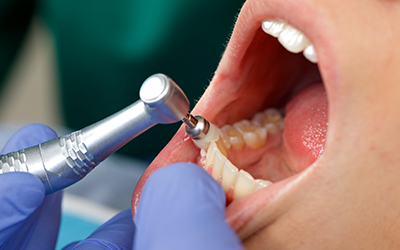Posted on Oct 26, 2020
Salivary Gland Stones
A+ A- A Main Content
Salivary gland stones, also called sialolithiasis, occur when someone becomes chronically dehydrated, has too much calcium in the body, or suffers from a bacterial staph infection. These problems cause the salivary glands to become swollen and block the flow of saliva.
Since saliva is an integral part of naturally washing away harmful plaque, bacteria, and acid, having healthy salivary glands is key to having a healthy mouth.
Symptoms of Salivary Gland Stones
If your salivary duct becomes blocked by stones, your saliva has nowhere to go. This buildup of saliva will cause swelling, pain, or a fever. Other symptoms include:
- Gritty or bitter-tasting saliva
- Chronic bad breath
- Seeing lumps or stones in the salivary glands under your tongue
- Problems with or pain when opening and closing your mouth
If salivary glands aren’t treated quickly, they can cause a bacterial infection, which can be dangerous and may even require IV antibiotics or surgical drainage.
Preventing Salivary Gland Stones
The best way for you to prevent developing stones in your salivary glands is to maintain a healthy saliva flow. This means making sure to stay hydrated and practice good dental hygiene. Brush your teeth at least twice a day, floss daily, and visit Meadows Family Dentistry for a dental cleaning and an exam!
If you believe you're suffering from salivary gland stones, please contact our Castle Rock, Colorado family dental office to make an appointment.
















 (303) 660-5576
(303) 660-5576 smile@meadowsfamilydentistry.com
smile@meadowsfamilydentistry.com 3740 Dacoro Lane, Suite #115
3740 Dacoro Lane, Suite #115